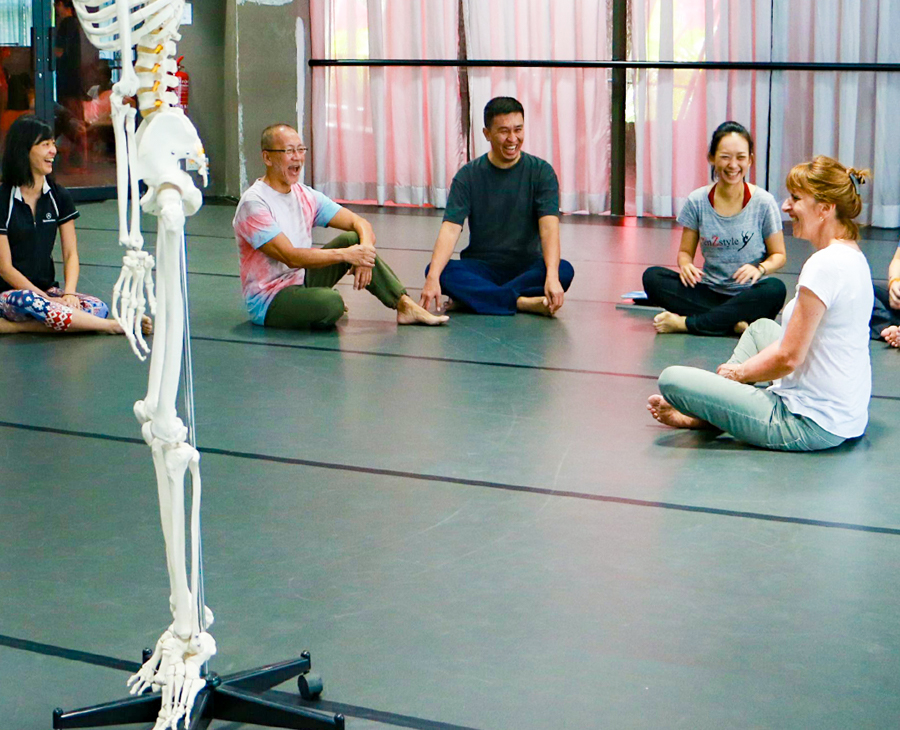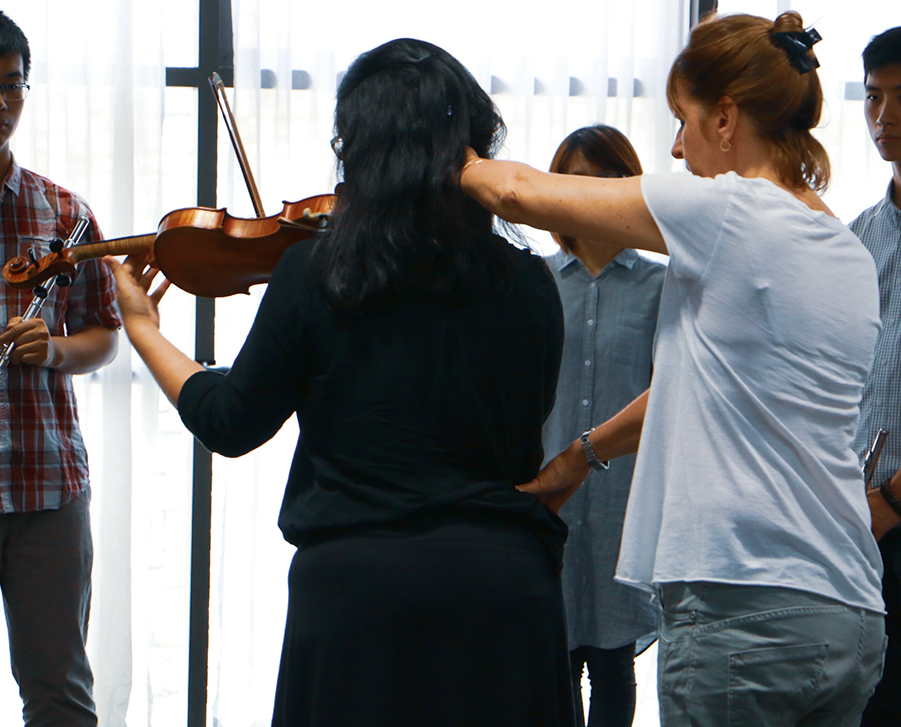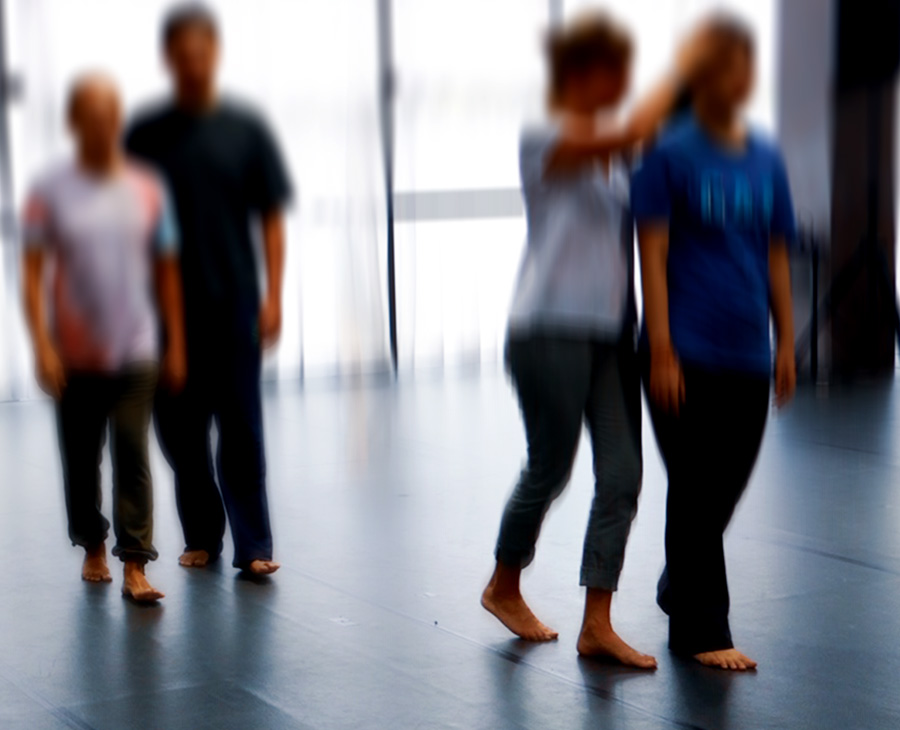TRAINING CFTA AGNÈS DE BRUNHOFF
Improving vocal performance for singers
TRAINING CFTA AGNÈS DE BRUNHOFF
Improving vocal performance for singers
Who for?
For singers to want to develop the most appropriate use of their body for vocal expressivity at its most efficacious, whilst taking care to protect their vocal health.
Requirements
This training programme requires regular singing practice, an understanding of the voice, familiarity with the musical repertoire chosen and concern with the frequently recurring problems to be solved in this repertoire.
Objectives
To improve the use of the breath within an appropriate psychophysical balance
To understand how to use the dynamics of breathing and vowels for appropriate vocal technique
To develop a full and dynamic sound through precise use of appropriate vowels
To open out the body in order to let the vocal timbre blossom
To apply the principles of appropriate vocal technique when under stress and in performing situations
Key points
Holistic teaching which enables pupils to blossom as their body and voice work together
Understanding and mastering the instrument which is their voice in all situations (on stage, in auditions, concerts, when under stress)
Programme:
A) Bodily awareness
rediscovering how to use the body appropriately with the Alexander Technique tools (connecting head-neck-back, dynamising the legs, deploying the muscles)
Restoring a balanced relationship between mind and body, learning to “think” our movements, free from the dictates of our intellect
Observing how the force of habit engenders unreliable sensory appreciation, then practising inhibition in order to allow more appropriate habits to develop
Applying this new use of the body in everyday situations and realising that vocal technique is determined by this overall balance
B) Awareness of the breath and the body’s “voice”
Working on the air column (with a candle and a straw) in association with the dynamics of the spinal column
Letting in the air with a “STOP” which allows the entire body to relax deeply
Whispered vowels (Alexander’s whispered Ah) on Ah and Oh
Alternating loud with whispered vowels so as to maintain muscular support
Spoken and sung from a text or a score to develop the muscles used for breathing (support) and emission (facial muscles). Improving singer’s’ vocal performance: breath, speaking voice and singing voice
Establishing a personalised vocal exercise programme to maintain appropriate technique on an everyday basis
C) Applying this to singing
Comparing what sound is actually produced with what the singer thinks they are producing
Singing into the mask, working on dynamics, projecting the voice and singing sotto voce
Working on a piece, looking at the vowels in the melody, the dynamic rhythm underlying the text and how it relates to the music
Different physical positions – sitting, standing, moving – and how to bring text and music alive without disturbing vocal production
Learning how not to let our desire to say, express, and experience the meaning of the text interfere with either air flow or vocal flexibility
Our training programmes:
1) Individual programme
Number of sessions and dates to be decided with the trainee – one hour a week
2) Training for groups of 8-12 people
Six hours of instruction divided across three morning sessions
Further sessions to be decided with the trainees
Estimate available upon request
Coach: Agnès de Brunhoff
Singer and pianist, composer and qualified Alexander Technique teacher since 1993 (London Society of Teachers of the Alexander Technique), vocal, instrumental and stage coach, Agnès de Brunhoff’s career has always embraced both performance and teaching. She has taught at the London Guildhall School of Music and Drama, the European Union Youth Orchestra and the Studio de Variétés (Popular Music Studio), and how holds teaching posts at the Paris Conservatoire (Conservatoire national supérieur de musique et de danse de Paris) and the Paris Opera Academy. She runs a large number of workshops for music teachers in Paris and in conservatoires, and by invitation at the Princess Galyani Vadhana Institute of Music and the DPAC in Kuala Lumpur.
In October 2008 she founded the Alexander Technique Training Centre (CFTAlexander), where she trains teachers of this Technique. She is currently coach to the Trio Atanassov and the singer Julie Robert Gendre.
In 2012 Delatour published Agnès de Brunhoff’s “En scène ! Corps à corps avec la Technique Alexander” with a revised version in 2015 and a translation with Joanna Britton “On stage ! Back to back with Alexander Technique”in 2013. It was followed in 2017 by “Les coulisses de l’être déployé” and its translation with Sophie Decaudaveine “Backstage mysteries of body and mind” éditions Delatour.



